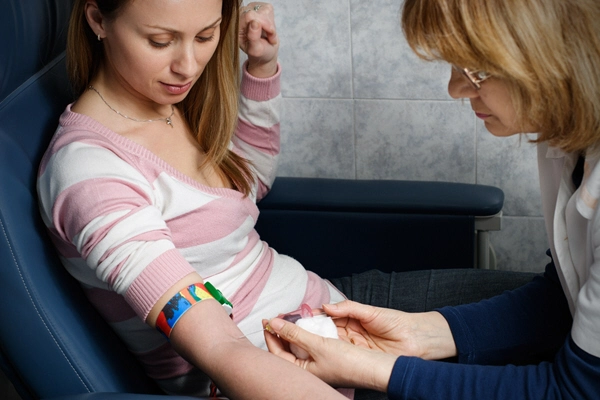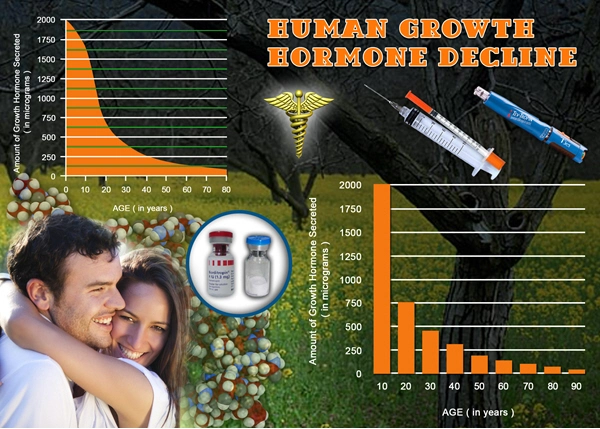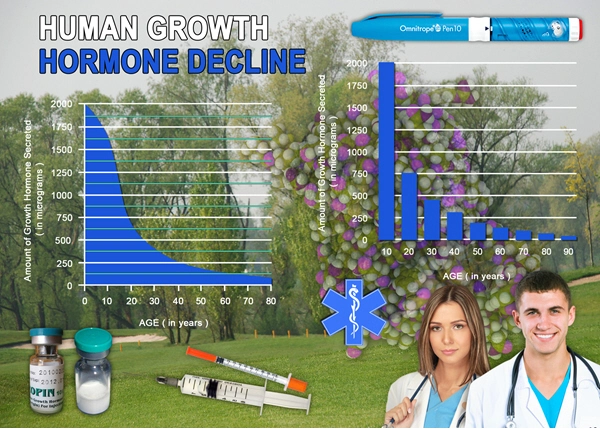Introduction to Male Hair Loss
Hair loss, or androgenetic alopecia, commonly referred to as male pattern baldness, affects a significant portion of American men. It is a natural part of aging for many, yet it can be a source of distress and self-consciousness. Understanding the risk factors associated with hair loss can empower men to take proactive steps toward managing or mitigating its impact.
Genetic Predisposition
The most significant factor influencing hair loss in men is genetics. If your father or grandfather experienced hair loss, there's a higher likelihood that you will too. The gene responsible, located on the X chromosome inherited from your mother, can trigger hair follicles to shrink over time, leading to thinner and eventually no hair. Recognizing this familial pattern can help you anticipate potential hair loss and explore preventive measures or treatments early on.
Hormonal Influences
Hormones play a crucial role in hair loss, particularly dihydrotestosterone (DHT). DHT is a derivative of testosterone, and men with higher levels of DHT are more prone to hair loss. This hormone binds to receptors in hair follicles, causing them to shrink and eventually stop producing hair. Understanding the hormonal aspect of hair loss can guide you toward treatments that block DHT production or its effects, such as finasteride.
Age and Hair Loss
Age is an undeniable factor in hair loss. While some men may start losing hair in their 20s or 30s, it's more common as men enter their 40s and beyond. The gradual nature of age-related hair loss can be distressing, but recognizing that it's a normal part of aging for many can help alleviate some of the associated stress. Regular monitoring and early intervention can make a significant difference in managing hair loss as you age.
Lifestyle and Environmental Factors
Lifestyle choices and environmental factors can also contribute to hair loss. High levels of stress, poor nutrition, and exposure to pollutants can exacerbate hair thinning. For instance, a diet lacking in essential nutrients like iron, zinc, and vitamins can weaken hair follicles. Similarly, chronic stress can lead to telogen effluvium, a condition where hair prematurely enters the resting phase and falls out. By addressing these modifiable factors, you can potentially reduce your risk of hair loss.
Medical Conditions and Medications
Certain medical conditions and medications can also lead to hair loss. Conditions such as thyroid disease, diabetes, and autoimmune disorders can affect hair growth. Additionally, medications like those used for cancer, depression, heart problems, and high blood pressure can have hair loss as a side effect. If you suspect that a medical condition or medication is contributing to your hair loss, consulting with a healthcare provider can help you explore alternative treatments or manage the underlying condition more effectively.
Preventive Measures and Treatments
While hair loss can be challenging to prevent entirely, especially if it's genetically driven, there are several strategies to manage it. Minoxidil, available over the counter, can stimulate hair growth and slow down hair loss. Prescription medications like finasteride can block DHT and help maintain existing hair. For those seeking more permanent solutions, hair transplant surgery can be an effective option, though it's important to consult with a qualified specialist to discuss the risks and benefits.
Conclusion: Embracing and Managing Hair Loss
Understanding the multifaceted nature of hair loss can help American men navigate this common issue with greater confidence and control. By recognizing the genetic, hormonal, age-related, lifestyle, and medical factors that contribute to hair loss, you can take informed steps to manage or mitigate its impact. Whether through preventive measures, treatments, or simply embracing your natural progression, the key is to approach hair loss with knowledge and proactive care.

- Unveiling the Silent Culprit: The Connection Between Scalp Infections and Male Hair Loss in America [Last Updated On: February 25th, 2025] [Originally Added On: February 25th, 2025]
- Exploring Medical Wigs: A Vital Solution for Hair Loss in American Males [Last Updated On: March 1st, 2025] [Originally Added On: March 1st, 2025]
- Examining the Complexities: Unraveling the Medical Implications of Hair Loss [Last Updated On: March 2nd, 2025] [Originally Added On: March 2nd, 2025]
- Understanding the Link Between Thyroid Disorders and Hair Loss: Causes, Diagnosis, and Management [Last Updated On: March 3rd, 2025] [Originally Added On: March 3rd, 2025]
- Advancements in Hair Loss Treatments and Impact on Men's Health [Last Updated On: March 4th, 2025] [Originally Added On: March 4th, 2025]
- Understanding Male Hair Loss: Causes, Diagnosis, and Treatment Options in the US [Last Updated On: March 5th, 2025] [Originally Added On: March 5th, 2025]
- Understanding and Managing Pediatric Male Hair Loss: Causes, Diagnosis, and Treatment [Last Updated On: March 6th, 2025] [Originally Added On: March 6th, 2025]
- Evaluating Over-the-Counter Hair Loss Treatments: Effectiveness and Considerations for Men [Last Updated On: March 7th, 2025] [Originally Added On: March 7th, 2025]
- Comprehensive Guide to Holistic Hair Loss Treatments for American Men's Well-Being [Last Updated On: March 8th, 2025] [Originally Added On: March 8th, 2025]
- Unlocking the Genetics of Hair Loss: Insights, Treatments, and Future Management Strategies [Last Updated On: March 9th, 2025] [Originally Added On: March 9th, 2025]
- Chemotherapy-Induced Hair Loss in American Males: Causes, Coping, and Regrowth Strategies [Last Updated On: March 12th, 2025] [Originally Added On: March 12th, 2025]
- Unraveling the Link Between Stress and Hair Loss in American Males: A Comprehensive Medical Insight [Last Updated On: March 12th, 2025] [Originally Added On: March 12th, 2025]
- Understanding Hormonal Influences on Male Hair Loss: A Comprehensive Guide [Last Updated On: March 13th, 2025] [Originally Added On: March 13th, 2025]
- Debunking Hair Loss Myths: Facts, Causes, and Effective Treatments for American Men [Last Updated On: March 15th, 2025] [Originally Added On: March 15th, 2025]
- Understanding Hair Loss: Types, Causes, and Effective Treatments for American Males [Last Updated On: March 17th, 2025] [Originally Added On: March 17th, 2025]
- Monogenic Hair Loss in American Males: Genetic Insights and Management Strategies [Last Updated On: March 17th, 2025] [Originally Added On: March 17th, 2025]
- Alopecia Universalis: Understanding, Treating, and Coping for American Males [Last Updated On: March 17th, 2025] [Originally Added On: March 17th, 2025]
- Allergies and Hair Loss in American Males: Understanding the Indirect Connection [Last Updated On: March 17th, 2025] [Originally Added On: March 17th, 2025]
- Hair Loss in American Men Linked to Increased Heart Disease Risk: Emerging Evidence [Last Updated On: March 19th, 2025] [Originally Added On: March 19th, 2025]
- Topical Treatments for Hair Loss: Efficacy, Options, and Professional Guidance [Last Updated On: March 19th, 2025] [Originally Added On: March 19th, 2025]
- FDA-Approved Medications: Combatting Hair Loss in American Men [Last Updated On: March 19th, 2025] [Originally Added On: March 19th, 2025]
- Diabetes and Hair Loss: Understanding Causes and Management Strategies for American Men [Last Updated On: March 19th, 2025] [Originally Added On: March 19th, 2025]
- Hair Loss in American Males: Causes, Surgical Options, and Management Strategies [Last Updated On: March 21st, 2025] [Originally Added On: March 21st, 2025]
- Telogen Effluvium: Causes, Symptoms, and Management in American Men [Last Updated On: March 21st, 2025] [Originally Added On: March 21st, 2025]
- Hair Loss in American Men: Psychological Impacts and Coping Strategies [Last Updated On: March 21st, 2025] [Originally Added On: March 21st, 2025]
- Managing Male Hair Loss During Partner's Pregnancy: Causes and Strategies [Last Updated On: March 22nd, 2025] [Originally Added On: March 22nd, 2025]
- Understanding Hairline Recession: Causes, Impacts, and Treatment Options for American Men [Last Updated On: March 22nd, 2025] [Originally Added On: March 22nd, 2025]
- Innovative Hair Loss Treatments for American Men: Stem Cells, Gene Therapy, and More [Last Updated On: March 22nd, 2025] [Originally Added On: March 22nd, 2025]
- Hair Loss Solutions: Inspiring Case Studies and Treatment Advances for American Men [Last Updated On: March 23rd, 2025] [Originally Added On: March 23rd, 2025]
- Autoimmune Disorders and Hair Loss: Impacts and Treatments for American Males [Last Updated On: March 23rd, 2025] [Originally Added On: March 23rd, 2025]
- Innovative Treatments and Technologies Transforming Hair Loss Solutions for American Males [Last Updated On: March 23rd, 2025] [Originally Added On: March 23rd, 2025]
- Hair Loss in Young Males: Causes, Impacts, and Treatment Options [Last Updated On: March 23rd, 2025] [Originally Added On: March 23rd, 2025]
- Hair Cloning: A Revolutionary Approach to Permanent Hair Loss Solutions [Last Updated On: March 23rd, 2025] [Originally Added On: March 23rd, 2025]
- Aromatherapy for Hair Loss: Exploring Benefits and Limitations for American Males [Last Updated On: March 23rd, 2025] [Originally Added On: March 23rd, 2025]
- Antidepressants and Hair Loss: Insights and Management Strategies for American Males [Last Updated On: March 24th, 2025] [Originally Added On: March 24th, 2025]
- Anemia and Hair Loss in American Men: Causes, Prevalence, and Management Strategies [Last Updated On: March 24th, 2025] [Originally Added On: March 24th, 2025]
- Drug-Induced Hair Loss: Mechanisms, Common Culprits, and Management Strategies [Last Updated On: March 24th, 2025] [Originally Added On: March 24th, 2025]
- Anabolic Steroids and Hair Loss: Mechanisms, Impacts, and Mitigation Strategies in American Males [Last Updated On: March 24th, 2025] [Originally Added On: March 24th, 2025]
- PCOS in Men: Understanding Symptoms, Diagnosis, and Hair Loss Treatment Options [Last Updated On: March 24th, 2025] [Originally Added On: March 24th, 2025]
- Androgenetic Alopecia: Genetic Insights and Emerging Treatments for Hair Loss [Last Updated On: March 24th, 2025] [Originally Added On: March 24th, 2025]
- Strategies to Mitigate Chemotherapy-Induced Alopecia in American Males [Last Updated On: March 24th, 2025] [Originally Added On: March 24th, 2025]
- Medical Hair Loss in American Men: Causes, Impacts, and Holistic Management Strategies [Last Updated On: March 25th, 2025] [Originally Added On: March 25th, 2025]
- Postpartum Hair Loss in American Males: Causes, Symptoms, and Management Strategies [Last Updated On: March 25th, 2025] [Originally Added On: March 25th, 2025]
- Thyroid Disorders and Hair Loss in American Males: Causes, Diagnosis, and Treatment [Last Updated On: March 26th, 2025] [Originally Added On: March 26th, 2025]
- Understanding and Managing Male Hair Loss in Aging American Men [Last Updated On: March 26th, 2025] [Originally Added On: March 26th, 2025]
- Shock Loss After Hair Transplant: Understanding and Managing Temporary Hair Loss in American Males [Last Updated On: March 26th, 2025] [Originally Added On: March 26th, 2025]
- Male Pattern Baldness: Advances in Treatment and Future Prospects [Last Updated On: March 26th, 2025] [Originally Added On: March 26th, 2025]
- Diagnosing Hair Loss in American Men: Traditional and Advanced Techniques [Last Updated On: March 26th, 2025] [Originally Added On: March 26th, 2025]
- Trichotillomania in American Males: Understanding, Impact, and Treatment Options [Last Updated On: March 26th, 2025] [Originally Added On: March 26th, 2025]
- LLLT: A Promising Non-Invasive Solution for Hair Loss in American Males [Last Updated On: March 26th, 2025] [Originally Added On: March 26th, 2025]
- Anabolic Steroids and Hair Loss: Risks, Mechanisms, and Mitigation Strategies [Last Updated On: March 26th, 2025] [Originally Added On: March 26th, 2025]
- Hair Extensions and Permanent Hair Loss: Risks for American Males [Last Updated On: March 26th, 2025] [Originally Added On: March 26th, 2025]
- Hair Dyes and Hair Loss in American Males: Current Insights and Precautions [Last Updated On: March 26th, 2025] [Originally Added On: March 26th, 2025]
- Hair Follicle Miniaturization: Causes, Symptoms, and Treatments for American Males [Last Updated On: March 26th, 2025] [Originally Added On: March 26th, 2025]
- Immune System Disorders and Hair Loss in American Males: Causes and Treatments [Last Updated On: March 27th, 2025] [Originally Added On: March 27th, 2025]
- AI Revolutionizes Male Pattern Baldness Treatment: Personalized, Effective Solutions [Last Updated On: March 27th, 2025] [Originally Added On: March 27th, 2025]
- Vitamin Deficiencies and Hair Loss: Insights for American Men's Hair Health [Last Updated On: March 27th, 2025] [Originally Added On: March 27th, 2025]
- Post-COVID Hair Loss: Causes, Symptoms, and Management Strategies for American Males [Last Updated On: March 27th, 2025] [Originally Added On: March 27th, 2025]
- Hair Loss in American Males: Societal Views vs. Medical Facts and Holistic Management [Last Updated On: March 27th, 2025] [Originally Added On: March 27th, 2025]
- PRP Therapy: A Promising Non-Surgical Solution for Hair Loss in American Men [Last Updated On: March 27th, 2025] [Originally Added On: March 27th, 2025]
- Rogaine: Benefits, Risks, and Considerations for American Men's Hair Loss Treatment [Last Updated On: March 28th, 2025] [Originally Added On: March 28th, 2025]
- Hair Loss in American Males: Causes, Diagnosis, and Comprehensive Management Strategies [Last Updated On: March 28th, 2025] [Originally Added On: March 28th, 2025]
- Scalp Psoriasis and Hair Loss: Impacts and Management for American Males [Last Updated On: March 29th, 2025] [Originally Added On: March 29th, 2025]
- High Blood Pressure and Hair Loss: Insights for American Males [Last Updated On: March 30th, 2025] [Originally Added On: March 30th, 2025]
- Efficacy of Hair Loss Shampoos for American Men: Benefits and Limitations [Last Updated On: April 1st, 2025] [Originally Added On: April 1st, 2025]
- Menopause and Hair Loss in American Males: Understanding Andropause and Treatment Options [Last Updated On: April 3rd, 2025] [Originally Added On: April 3rd, 2025]
- Stem Cell Therapy: A Breakthrough in Treating Male Pattern Baldness [Last Updated On: April 3rd, 2025] [Originally Added On: April 3rd, 2025]
- Hair Loss in American Men: Psychological Impacts and Holistic Management Strategies [Last Updated On: April 5th, 2025] [Originally Added On: April 5th, 2025]
- Hair Loss After Weight Loss Surgery: Causes, Impacts, and Management for American Males [Last Updated On: April 6th, 2025] [Originally Added On: April 6th, 2025]
- Understanding Central Centrifugal Cicatricial Alopecia in American Males: Symptoms, Causes, and Management [Last Updated On: April 7th, 2025] [Originally Added On: April 7th, 2025]
- Hair Breakage vs. Loss: Causes, Differences, and Care for American Males [Last Updated On: April 7th, 2025] [Originally Added On: April 7th, 2025]
- Hair Loss and Mental Health: Navigating Psychological Impacts for American Men [Last Updated On: April 8th, 2025] [Originally Added On: April 8th, 2025]
- Minoxidil for American Men: Understanding, Using, and Maximizing Hair Regrowth [Last Updated On: April 8th, 2025] [Originally Added On: April 8th, 2025]
- Nutrition's Role in Combating Hair Loss: A Guide for American Men [Last Updated On: April 9th, 2025] [Originally Added On: April 9th, 2025]
- Protein Shakes and Hair Loss: A Comprehensive Guide for American Men [Last Updated On: April 9th, 2025] [Originally Added On: April 9th, 2025]
- GI Health and Hair Loss: Understanding the Link in American Males [Last Updated On: April 10th, 2025] [Originally Added On: April 10th, 2025]
- Lifestyle Changes to Combat Hair Loss in American Men: Diet, Stress, and Exercise [Last Updated On: April 11th, 2025] [Originally Added On: April 11th, 2025]
- Smoking and Hair Loss: Mechanisms, Evidence, and Preventive Strategies for American Males [Last Updated On: April 12th, 2025] [Originally Added On: April 12th, 2025]
- Weight Loss Diets and Hair Loss: Insights and Strategies for American Males [Last Updated On: April 13th, 2025] [Originally Added On: April 13th, 2025]
- Iron Supplements and Hair Loss Reversal in American Males: A Comprehensive Analysis [Last Updated On: April 13th, 2025] [Originally Added On: April 13th, 2025]



List of USA state clinics - click a flag below for blood testing clinics.
Word Count: 608



















































